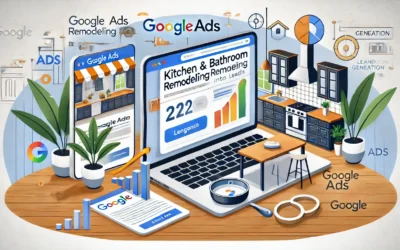Local SEO (Search Engine Optimization) is crucial for small businesses looking to attract customers in their specific geographic area. By optimizing your website for local search, you can ensure that potential customers find your business when they search for products or services near them. Here’s a comprehensive guide on how to optimize your small business website for local SEO.
1. Claim and Optimize Your Google My Business Listing
One of the most effective ways to improve your local SEO is by claiming and optimizing your Google My Business (GMB) listing. This free tool allows your business to appear in local search results and on Google Maps. Ensure your listing is complete with accurate business information, high-quality photos, and customer reviews.
2. Use Local Keywords
Incorporate local keywords throughout your website content. These are phrases that include your business location, such as “best coffee shop in [City]” or “affordable web design services in [City].” These keywords help search engines understand where your business is located and what services you offer.
3. Create Local Content
Publishing content that is relevant to your local audience can boost your local SEO. This can include blog posts about local events, news, or community activities. By demonstrating your involvement in the local community, you increase your chances of appearing in local search results.
4. Optimize for Mobile
A significant amount of local searches are conducted on mobile devices. Ensure your website is mobile-friendly by using responsive design, fast loading times, and easy navigation. A mobile-optimized website improves user experience and can positively impact your local search rankings.
5. Build Local Citations
Local citations are mentions of your business’s name, address, and phone number (NAP) on other websites, such as online directories, social media platforms, and local business associations. Ensure that your NAP information is consistent across all platforms to improve your local SEO.
6. Encourage Customer Reviews
Positive reviews on platforms like Google My Business, Yelp, and Facebook can boost your local search rankings and attract more customers. Encourage satisfied customers to leave reviews and respond to them promptly, whether they are positive or negative.
7. Optimize Your Website’s Meta Tags
Ensure your website’s title tags, meta descriptions, and header tags include local keywords. This helps search engines understand the geographic relevance of your content and improves your chances of appearing in local search results.
8. Use Structured Data Markup
Implementing structured data markup (schema) on your website can help search engines understand your business information better. This can enhance your local search visibility and result in rich snippets, such as star ratings and business hours, appearing in search results.
9. Create a Local Backlink Strategy
Backlinks from local websites can significantly boost your local SEO. Reach out to local businesses, bloggers, and news sites to earn relevant backlinks. Participating in local events and sponsorships can also generate valuable local backlinks.
10. Monitor and Analyze Your Local SEO Performance
Regularly monitor your local SEO performance using tools like Google Analytics and Google Search Console. Analyze metrics such as local search rankings, website traffic, and conversion rates to identify areas for improvement and adjust your strategies accordingly.
Conclusion
Optimizing your small business website for local SEO is essential for attracting local customers and growing your business. By implementing these strategies, you can enhance your online presence, improve your local search rankings, and drive more traffic to your website. Web Liftoff is here to support you with expert advice and ongoing website maintenance to ensure your site remains optimized for local search.
—
Feel free to let me know if there are any additional changes or specific areas you’d like to emphasize further.



